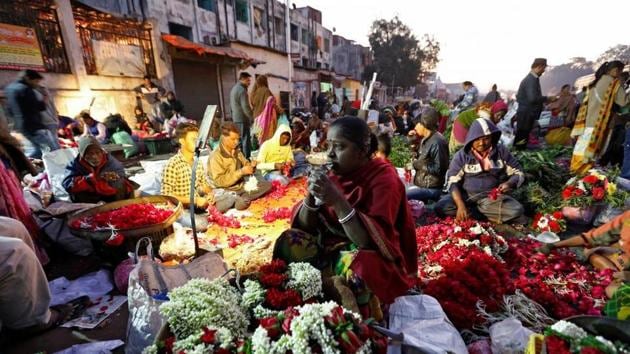UP election: Flowers gone, fragrance gives way to thorns in poll-bound Sikanderpur
Horticulture made Sikanderpur a famous centre for perfumes of gulab and kewda, jasmine oil, rose oil and attar. Farmers who cultivated them in acres after acres are now wary.
Roses, jasmine, kewda and other flowers have never been a poll issue in Sikanderpur. But as it goes to vote on Saturday, this constituency could present a bouquet of thorns for politicians.

The fields of Sikanderpur assembly constituency in eastern UP’s Ballia district once used to spread fragrance of different flowers — roses, jasmine (Juhi, Chameli) ) and kewda. Fragrance of gulab jal (rose water) once overpowered the foul smell emanating from drains.
Horticulture made Sikanderpur a famous centre for perfumes of gulab and kewda, jasmine oil, rose oil and attar. Farmers who cultivated them in acres after acres are now wary.
“We have scaled down flower cultivation. There is no return now,” said Sheodas Rajbhar, who used to grow rose, bela and chameli. The scaling down had an immediate impact on perfume manufacturing. Sikanderpur, which had more than a dozen factories, is left with only two units.
The farmers are angry as no political party has taken up their issues, nor has the government showed interest in its revival.
“It was a good business for us. Bur after the closure of factories, my two brothers left for Gujarat while I stayed back and make ends meet somehow by selling fruits,” said Subhash Kumar Paswan of Sisotar village.
“Nearly 70% of cultivable land in the area was under flower cultivation earlier. But unfortunately, the government never brought in any new technology or innovation,” said Ajay Tiwari, who switched over to farming of sugarcane, wheat and paddy.
The main reason, says Ram Narayan Gupta, a retired havildar major, is the price. “Sattidars (middlemen) purchase roses at Rs.300 per kg, which they sell to mill owners at a profit of Rs.200-300 per kg and the mill owner earns between Rs.3,000 and Rs.15,000 per kg.





